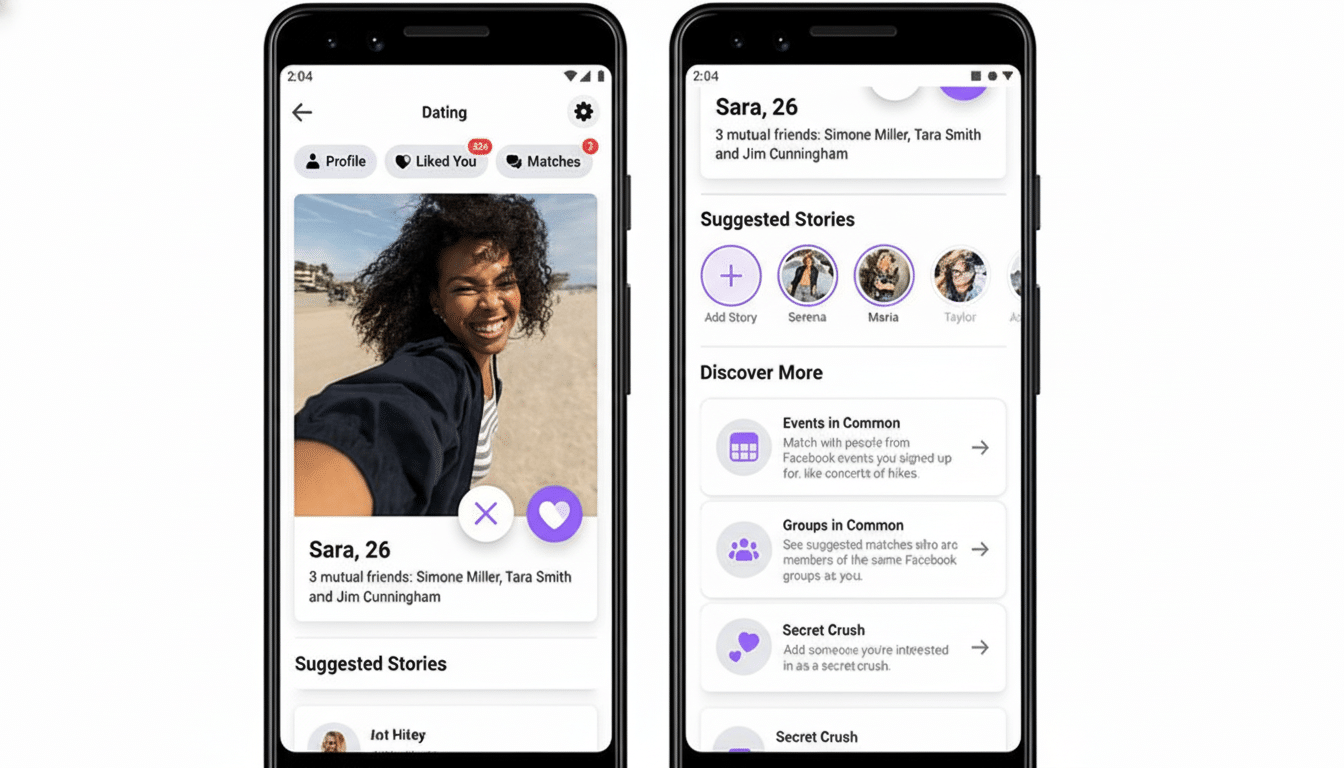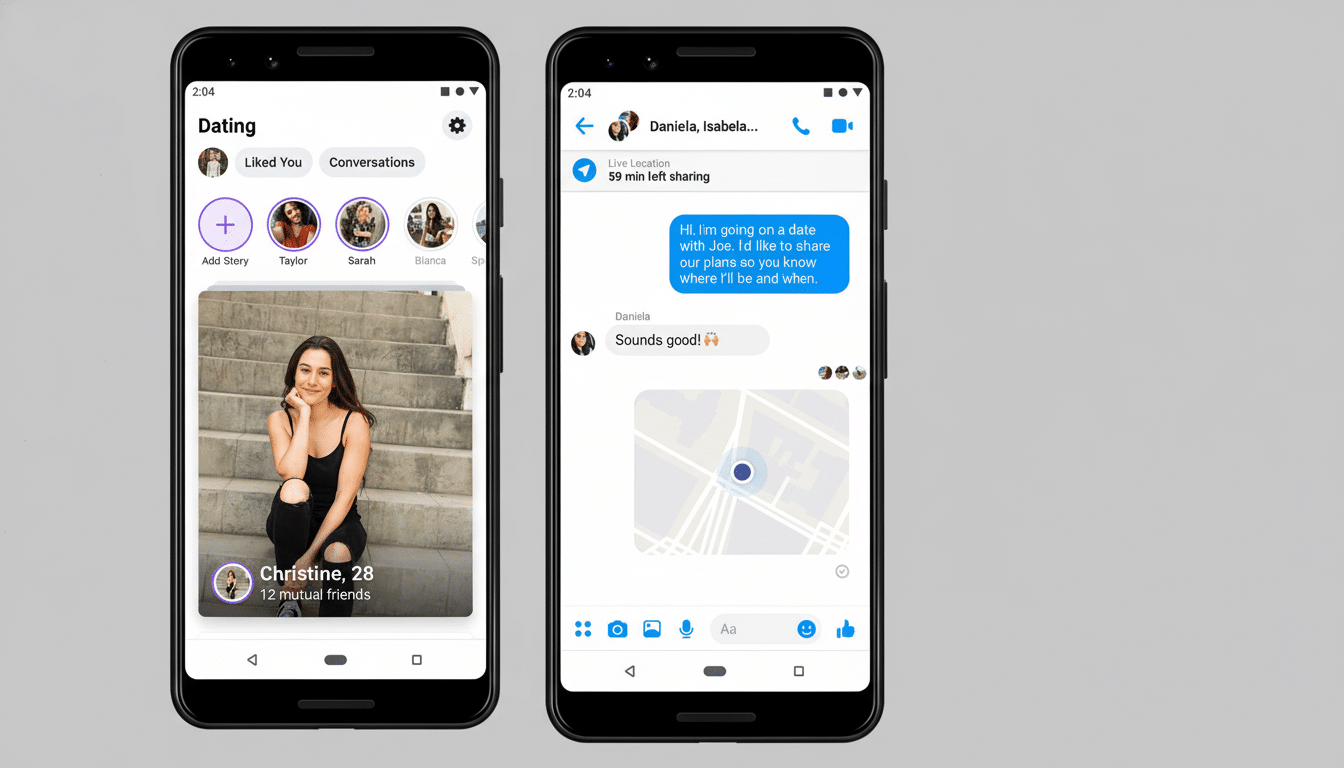Shocked to learn people are meeting on Facebook Dating at all? Well, Meta just took the wind out of that scoff. For the first time since it launched in the fall of 2019, the company also shared that 21.5 million people are sending more than 1.5 billion likes and messages a day on Facebook Dating in the 52 countries where it’s available — enough to turn it into something more than a punch line for daters fatigued by swiping through rather prosaic dating apps.
What the usage numbers reveal about Facebook Dating
Meta’s revelation runs counter to the common storyline that Facebook is simply too uncool for courtship. The service claims 1.77 million users in the U.S. who are between 18 and 29, a group Facebook has had difficulty retaining elsewhere in its app. Meta also found that 18–29-year-olds were boosting their daily chats on Facebook Dating by 24% over the past year.

How does that stack up? App intelligence firm Sensor Tower estimated this summer that in the U.S., Tinder had 7.3 million active users, Hinge 4.4 million and Bumble 3.6 million; four-year-old Grindr, which helped pioneer geosocial-based dating apps, had an average of 2.2 million daily active users around the world during the first six months of this year. Those aren’t apples-to-apples comparisons to Meta’s DAU, but they provide some useful context: While Facebook Dating isn’t the top dog in the yard by a long shot, it’s no ghost town.
Placement helps. Facebook Dating exists as a part of the main Facebook app, but to use it you need to set up a separate profile. For many, and perhaps most, Facebook Dating also didn’t appear under their preferences, especially for users not currently in relationships. That sort of real estate and cross-app awareness affords it a discovery advantage competitors can’t neatly replicate.
Why a free model matters for Facebook Dating users
What’s most appealing about Facebook Dating is not the way it opens access to partners (that happens elsewhere, at no cost), but how it manages its balance sheet.
There’s no rose tax to message a top match, no paywall to see who’s liked you and no premium-only queue that makes free users feel like second-class citizens. That contrasts with the revenue engines of competitors.
Take Hinge’s Standouts tab, which launched last year and gathers “most compatible” profiles behind roses that generally cost about $4 a pop if you exhaust the weekly freebie. Tinder and Bumble similarly take advantage of boosts, Super Likes and tiered subscription models. That leads to average revenue per user, but it can also leave daters feeling nickel-and-dimed.
Meta can afford to keep the experience free because it already makes money off attention across its ecosystem. That doesn’t make it altruistic — your activity is still feeding Meta’s data machine — but the user calculus has changed at a time when many people are tired of paying to connect in simple ways.
Gen Z is more open-minded than you realize
For an entire generation that is frequently described as having abandoned Facebook, the 18–29 momentum is never nothing. Some of the appeal is because, practically speaking, a dating profile connected to the Facebook graph makes it easy for possible matches to surface shared groups and events and mutual interests that don’t necessarily broadcast themselves through your friend network. The dating profile is, by default, not connected to your Facebook profile (you don’t match with any friends unless you use the Secret Crush feature).

There’s also a vibe shift. As costs and complexity grow on other apps, one with a recognizable interface and fewer hoops begins to seem a little less cringe, and a lot more convenient. Around 3 in 10 U.S. adults say they’ve ever used an online dating site or app, as the pool of potential matches grows and the use of sites and apps expands — people feel more comfortable with others who use them.
The true test is privacy and trust on Facebook Dating
Facebook Dating’s long game is less affected by whether it leads to more romantic interests and relationships than by Facebook being able to gather data from it that can be used to make meaningful improvements in its overall social network. Trust will decide if Facebook Dating will sink or swim.
A distinct dating profile means your friends won’t know you are on the app, and tools that help block and report bad actors bring other things to the party. A real-name culture on Facebook could also prevent catfishing compared with fully pseudonymous apps.
But Meta’s track record on data privacy hangs over every new feature. Users get a free experience in exchange for their personal information, but the trade-off is behavioral data inside one of the world’s most sophisticated ad systems. If Meta wants to win over the skeptics, it will have to offer continued transparency on how dating activity works across its platforms.
What that means for the online dating market today
As a fast follower, however, Facebook Dating changes the competitive math. It’s a big, free alternative that puts pressure on competitors to explain why real paid tiers are necessary, rather than just the exchange of visibility pixels. Meta must not only keep its product simple and free, but in doing so, it should catalyze more price experimentation and feature overhauls from the incumbents trying to defend ARPU.
The greater opportunity may be beyond the United States, where Facebook’s reach is most extensive and subscription spending is relatively low. With 21.5 million DAU across 52 markets, Meta doesn’t have to own every city to count; it simply has to be good enough in enough places such that it can suck up users’ time and attention.
So yes, people actually do use Facebook Dating. It’s not outstripping Tinder or Hinge, but in a dating economy shaped by cost, convenience and trust, Meta has carved itself a surprisingly credible lane — one daily active user at a time.

